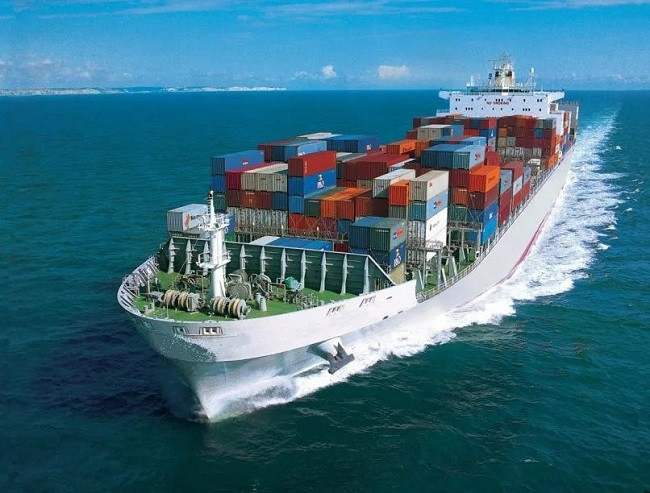Apparel shipment to the European Union (EU) will not be affected if the EU adopts the proposed corporate sustainability due diligence as Bangladesh has already improved the required conditions, said the industry leaders.
Bangladesh has been improving the basic conditions which have been enclosed in the proposed directives of the corporate sustainability due diligence adopted by the European Council and European Parliament on December 14, 2023.
The Council and the European Parliament on December 14, 2023, reached a provisional deal on the corporate sustainability due diligence directive (CSDDD), which aims to enhance the protection of the environment and human rights in the EU and globally, according to a statement from the European Council (EC).
The due diligence directive will set obligations for large companies regarding actual and potential adverse impacts on human rights and the environment, with respect to their own operations, those of their subsidiaries, and those carried out by their business partners, the EC also said in the statement.
Reactions from the garment exporters’ leaders
Garment exporters are not worried over the proposed due diligence for the corporate sustainability which mainly focused environment, human and labor rights.
Faruque Hassan, president of Bangladesh Garment Manufacturers and Exporters Association (BGMEA) said he knows about this corporate sustainability due diligence from the very beginning.
Bangladesh’s garment sector has been improving its due diligence and compliances over many years and now the sector is capable to address those challenges.
“I do not think the proposed due diligence rules will affect the garment sector as the country improved the environmental, human and labor rights a lot over the years and we are still working to improve those issues for the sector,” Hassan said.
For instance, Bangladesh has the highest number of LEED (Leadership in Energy and Environmental Design) garment factories more than 204 and 500 more garment factories waiting to be certified for LEED.
So Bangladesh has invested billions of dollars for greening the garment factories for production following the protection of environment, he said.
“The BGMEA has already set up the responsible business hub to address the due diligence of the European Union (EU) and we have regular consultation with the EU to upgrade those required due diligence. So we do not think the EU due diligence will affect our apparel shipments to the EU,” Hassan also said.
“Moreover, we are ready to improve our due diligence and compliances if they (the EU) refer us for further development. I hope the EU will also spare more time to develop the due diligence if there is something new,” the BGMEA chief also said.
Bangladesh has also been improving the labor law to make it international standard as per the commitment made in the National Action Plan (NAP), the document that was adopted in 2021 to improve the labor rights, Hassan added.
“We are in the track of the EU due diligence,” he said adding that the EU should also pay the ethical prices for the garment items those they source from Bangladesh.
Bangladesh is already a proved country which has successfully implemented the conditions of the Accord and Alliance for strengthening the workplace safety, said Mohammad Hatem, executive president of Bangladesh Knitwear Manufacturers and Exporters Association (BKMEA).
“Still, if we need to do something new we are ready to do this as per the requirements of the EU. We are taking those due diligence positively,” Hatem also said.
“I also think the proposed due diligence of the EU will not have any impact on our export to the EU,” Hatem said.
The local garment exporters have full confidence on the EU and the country will always follow the directives of the EU for further development of trade, Hatem said.
The proposed EU due diligence will not affect the garment export to the EU, he said.
Bangladesh’s export to the EU
Currently, the EU is the largest export destination bloc for Bangladesh. Bangladesh’s exports to the EU (as well as globally) are overwhelmingly apparel (knitted and not knitted), accounting for more than 90 percent of total exports to the EU in 2022, according to the data from the EU.
This reflects Bangladesh’s overall export structure, which has been strongly based on its ready-made garments (RMG) exports, where Bangladesh has become the second-most important exporter globally, after China. Virtually all Bangladeshi exports to the EU take place under the Everything but Arms (EBA) preferences, and utilization rates (10) have consistently been 95 percent or higher, the EU data also said.
In 2019, Bangladesh’s export to the EU was €15.36 billion and in 2020 the figure was €13.03 billion, the EU data said. In 2022 the export from Bangladesh to the EU was €14.88 billion and in 2022 the figure reached to €22.67 billion, the EU data said.
Of the total export to the EU from Bangladesh, more than 90 percent is garment items.
In July November of the current fiscal year the total growth in garment shipment to the EU was 0.18 percent negative compared with the corresponding period of the last fiscal year, according to data from the Export Promotion Bureau (EPB). In July November period of the current fiscal year, Bangladesh exported garment items worth $9.05 billion, the EPB data also said.
What the European council says
The Council and the European Parliament today reached a provisional deal on the corporate sustainability due diligence directive (CSDDD), which aims to enhance the protection of the environment and human rights in the EU and globally. The due diligence directive will set obligations for large companies regarding actual and potential adverse impacts on human rights and the environment, with respect to their own operations, those of their subsidiaries, and those carried out by their business partners.
SOURCE: CLICK HERE

